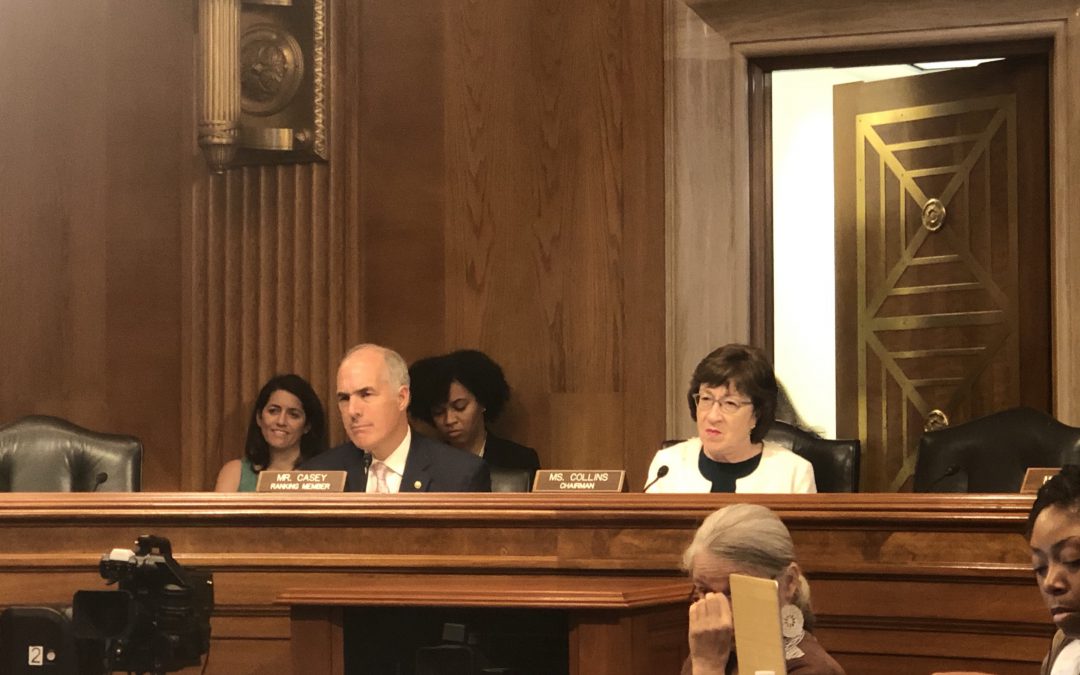WASHINGTON — Robocalls are not just a nuisance, they can have devastating consequences. Unfortunately, Angela Stancik of Houston knows that reality far too well.
“Her golden years and the last chapter of her life was taken from her,” Stancik said of her grandmother, Marjorie Jones, who committed suicide after losing her life savings to robocall scammers. “It pains me to think about my grandmother’s horrific death because she chose to take her own life. She was robbed in every sense. ”
Crying as she testified before the Senate Aging Committee hearing Wednesday, Stancik said criminals told her grandmother that she had won a cash prize and simply had to pay taxes and fees to collect the money. She said Jones then took out a reverse mortgage on her home and cashed out her life insurance to pay them.
“She died with $69 in her bank account,” Stancik said.
Illegal robocallers are on track to generate 58 billion calls this year – 10 billion more than last year, according to Committee Chairman Sen. Susan Collins, R-Maine.
The calls range in content. Some pitch promotions and offers, others impersonate a loved one, government agency or law enforcement. What they all have in common is the goal to steal victim’s money. Over the course of days, weeks or months scammers can cheat victims out of thousands, sometimes hundreds of thousands of dollars, authorities say.
Collins and the top Democrat on the committee, Sen. Bob Casey of Pennsylvania, have introduced measures to combat the illegal robocalls.
Casey’s bill, introduced in January, aims to create a federal advisory council to develop educational materials for financial institution, retail and wire transfer company employees.
“Many in our country are divided on a range of issues but we’re united as Americans in despising these robocalls,” he said.
The Senate already has passed a bill co-sponsored by Collins, which would increase federal law enforcement’s authority to put a stop to illegal robocalls.
Aging Committee member Sen. Richard Blumenthal, D-Conn., and Rep. Jackie Speier, D-Calif., introduced companion bills in the Senate and House that would require telephone companies to offer free robocall blocking services to customers.
Collins said she’s hopeful her bill will reach the president’s desk “soon” and that the Commerce Committee will package the Aging Committees bills. She said she plans to meet with Commerce Committee leaders.
In February 2018, Stancik joined then-Attorney General Jeff Sessions for his announcement of a major crackdown on fraud against older Americans.
Stancik’s grandmother’s case was successfully prosecuted by the Fraud Section of the Department of Justice.
“Postal Inspectors identified approximately 1,800 people living in the U.S. who collectively lost more than $10 million in connection with this single fraudulent operation,” Delany De Leon-Colon, inspector in charge of the Postal Inspection Service’s Criminal Investigation Group, told to the committee.
She said nine defendants were charged on various wire fraud and money laundering counts; eight worked in a call center in Costa Rica. Several were extradited to face charges in the U.S. Three remain fugitives.
Andrew Smith, a Jamaican national, and Christopher Griffin, a U.S. citizen, were convicted in April and sentenced to 25 years and 20 years in prison, respectively. Both men were ordered to pay close to $10 million in restitution.

